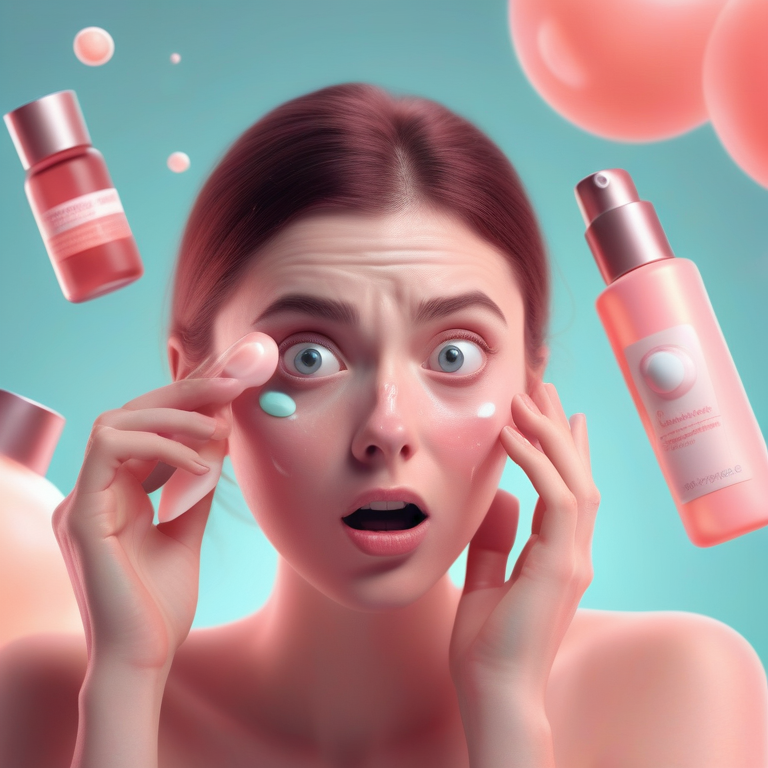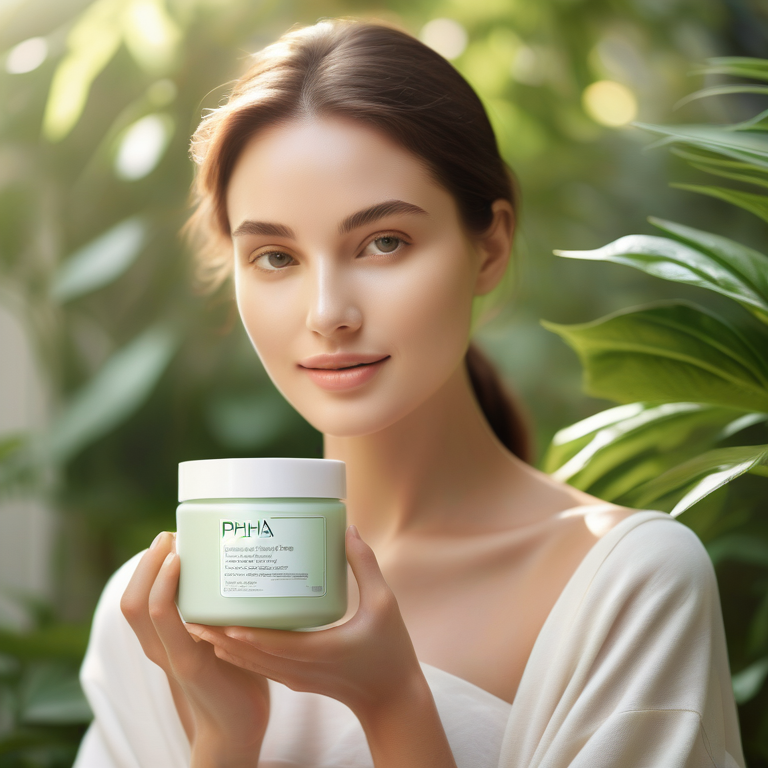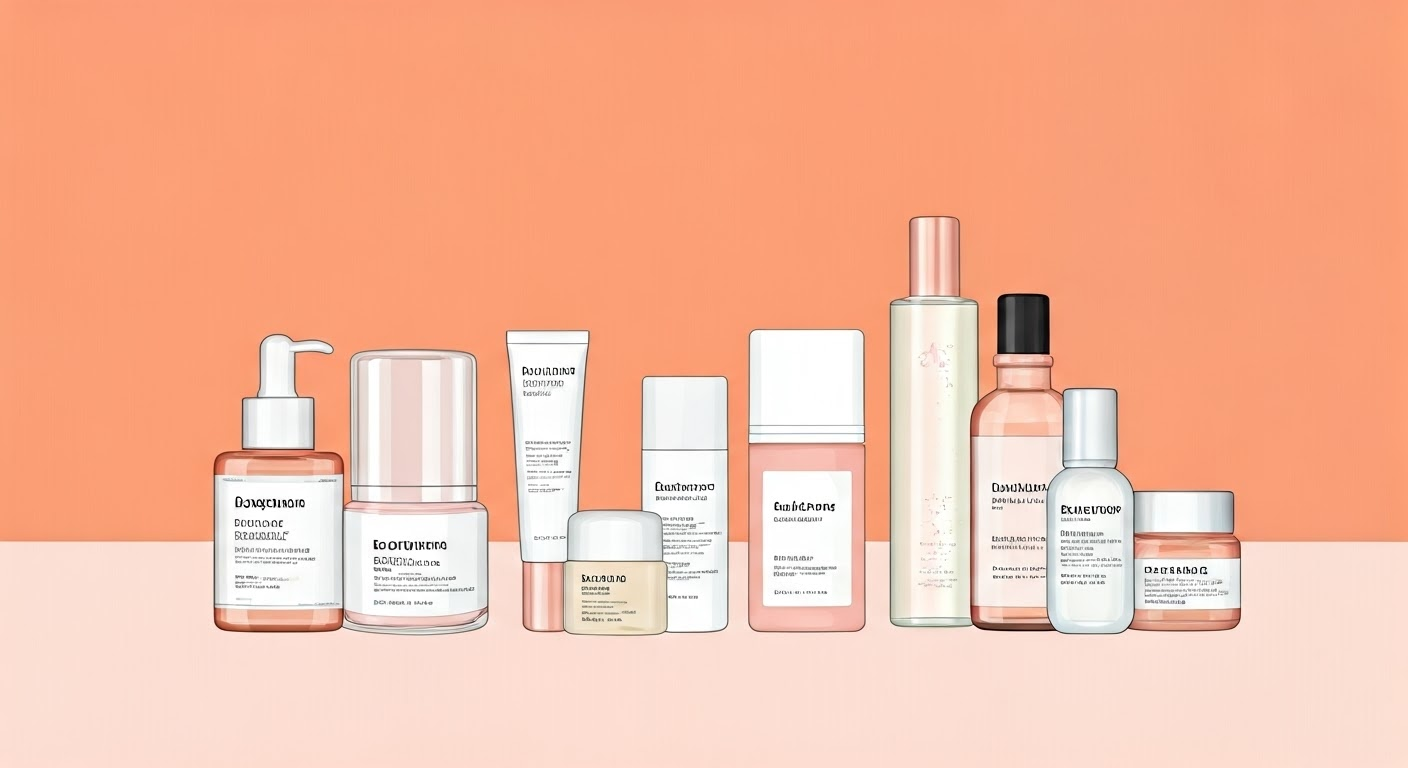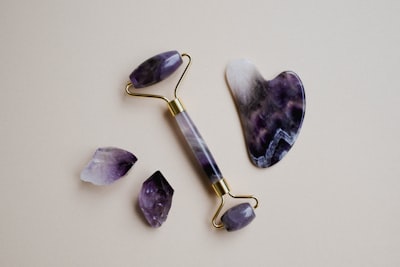Why Does My Face Burn After Skin Care? Here's Why


Key Highlights
Your face shouldn't feel weird or get irritated by skin care products.
- Sometimes, you might feel a tingling or stinging because your skin is reacting to certain stuff in the products.
- It's key to know what's okay for your skin and what's not.
- Often, things like contact dermatitis, allergies, and being sensitive can make your skin upset.
- Stuff like essential oils, glycolic acid, and salicylic acid might be too harsh for some people.
- Even scents and preservatives added to skincare items could lead to irritation.
- If you've got sensitive skin, going natural or organic with your skincare might be better.
- -With natural ingredients around; they're good at calming the skin down while keeping it hydrated properly
- Organic options tend to be gentler on easily bothered skins
- Sometimes even exfoliating acids that are supposed remove dead cells gently moisturizers may leave behind an uncomfortable burning feeling,
- Making sure your outer layer of protection stays strong helps keep irritations away
- To fix up any damage done already choosing gentle methods as part of daily routine along picking out suitable solutions specifically tailored towards individual needs proves beneficial especially when trying avoid those hot fiery sensations across facial area
Why Does My Face Burn After Skin Care?

After skincare, feeling a burning sensation on your face can be worrisome. Various reasons could cause this discomfort. Ingredients like essential oils, glycolic acid, and salicylic acid might be too harsh for some skin. Contact dermatitis, allergies, or skin sensitivity could also trigger irritation. To ease your skin and avoid burning, consider switching to natural products. Opt for milder exfoliants and moisturizers. Focus on strengthening your skin barrier, pick products suitable for your skin type, and address specific concerns. If the burning continues, seek advice from a dermatologist for proper care. Choose gentle products that cater to your needs for better skin health.
Can an allergic reaction be the reason your face burns when putting on lotion?

Yes, an allergic reaction can indeed be the reason why your face burns when putting on lotion. Certain ingredients in lotions, such as fragrances, preservatives, or specific chemicals, can trigger an adverse reaction in some individuals, leading to redness, itching, burning sensations, or even hives. If you suspect an allergic reaction to your lotion, discontinue use immediately and consult a dermatologist for further guidance on suitable alternatives for your skin. Opting for hypoallergenic or fragrance-free lotions may also help alleviate such reactions.
Understanding Skin Irritation and Burning Sensations
Sometimes when you put skincare stuff on your face, it might feel like it's tingling or even burning a bit. This happens because some ingredients in the product can kick off an inflammatory reaction, which can be a good thing. Your face has these nerve fibers really close to the skin’s surface, and certain things can make them act up, giving you that tingling or burning feeling. Along with this, you might notice your skin turning red or feeling warm. Often, this kind of sensation is okay and nothing to worry about. But sometimes, it's important to tell apart what's normal from what could be bad for your skin health.
The Science Behind Skin Reactions

When you put certain things on your face and it starts to feel like it's burning or tingling, that's because the tiny nerves in your skin are getting activated. These ingredients make these nerve endings wake up, which gives you that sensation. On top of this, there can be an inflammatory reaction happening under your skin. This makes the blood vessels close to your surface get bigger, which can make your skin look red or feel warm. It's okay to feel a bit of this sometimes but if it gets really bad or keeps happening, it might mean there’s something wrong with what you're using on your face, such as a product with a lower pH, or maybe with how sensitive your skin is.
Differentiating Between Normal and Harmful Skin Responses
If your face burns after skincare, it's essential to understand three types of sensations: tingle, stingle, and sting/burn. A tingle is brief and doesn't cause visible redness. It can be due to certain ingredients that mildly affect your skin barrier. A stingle lasts longer but typically results in minor redness or warmth. If it improves, it's likely not a concern. However, if the sensation worsens and persists, seeking medical advice is advisable as it could indicate a severe skin reaction.
On the other hand, sting/burn is when things get intense with lasting pain that often leaves the skin looking red or feeling hot. This means you should stop using whatever product caused it unless it was recommended by someone like a doctor for specific reasons.
Identifying Common Culprits of Skin Discomfort
There are a few usual suspects that might make your skin feel uncomfortable and cause the burning feeling you get after using skincare products. For starters, contact dermatitis happens when something that irritates your skin or to which you're allergic touches it. This can make your skin turn red, itch, and burn. Then there's having an allergic reaction to some of the stuff in skincare items. If you've got sensitivities, chances are higher for this kind of trouble. Lastly, just being someone with sensitive on its own can lead to that burning sensation too. Folks with this type of complexion may react more strongly than others to certain things they put on their face or changes around them like weather shifts causing irritation and discomfort.
Ingredients Known to Cause Sensitivity

Some stuff you put on your skin, like essential oils or certain acids, might make it feel like it's burning. This happens because these ingredients can be pretty harsh, especially if your skin is easily bothered. Glycolic acid and salicylic acid are two things often found in products meant to scrub away dead skin cells but using too much of them or putting them on sensitive skin can lead to discomfort. Additionally, some skincare products can disrupt the skin's natural pH, causing a burning sensation. It's a good idea to try a little bit of any new skincare product on a small area first before making it part of your everyday routine. This way, you can avoid that unpleasant burning feeling and keep your skincare game strong without upsetting your skin.
The Role of Fragrances and Preservative Sensitivity
In skincare items, stuff like fragrances and preservatives are usually mixed in. They're there to either make the product smell good or keep it from going bad by stopping bacteria and mold from growing. However, these ingredients can lead to skin feeling irritated or even cause a burning sensation, especially if your skin is on the sensitive side. For those with this kind of sensitivity, picking products that don't have any fragrance or are made for hypoallergenic use is a smart move. Also, try steering clear of anything that's packed with lots of preservatives.
Natural and Organic Products and Sensitive Skin
For folks with sensitive skin, turning to natural and organic skincare might be a better choice than sticking with the usual stuff. With ingredients that come straight from plants, these products can calm your skin down and help keep it hydrated. On top of that, they're often packed with things that fight inflammation, which means they can cut down on irritation and redness. Organic options are especially gentle since they're made without any harsh chemicals or artificial stuff found in regular fertilizers or pesticides. But remember, even though they're natural or organic doesn't mean everyone will get along with them perfectly—some people might still have reactions. So before you dive in fully, doing a small test on your skin and checking out what's actually in them is pretty smart.
How Natural Ingredients Can Soothe the Skin

Using natural stuff like aloe vera, chamomile, and green tea extract is great for making your skin feel better and less irritated. With their anti-inflammatory powers, they can help ease redness and swelling. They're also good at keeping the skin's moisture barrier strong, which means your skin stays hydrated and healthy. On top of that, these ingredients encourage the production of lipids in the skin, boosting its health and ability to bounce back from damage.
Organic Skincare: A Safer Alternative?
Organic skincare items are crafted from components grown without synthetic pesticides or fertilizers. Many believe they're a better choice for folks with sensitive skin because they usually don't have harsh chemicals or irritants that could lead to skin sensitivity and a burning feeling. But, it's key to remember that even organic products might not suit everyone. So, doing a patch test and checking the ingredient list closely is crucial to make sure these products agree with your skin.
Addressing Specific Skin Concerns
When it comes to skincare, not everyone's experience is the same because of different skin types and problems that can lead to a burning feeling. For instance, people with oily skin often deal with blocked pores and acne, which might irritate their skin and make it burn. On the flip side, those with dry skin could have issues with their skin's barrier being damaged, which can cause a burning sensation. This makes them more likely to get irritated easily. By knowing what type of skin you have and tackling these specific issues head-on, you can work towards stopping or at least managing this uncomfortable burning sensation.
Exfoliating Acids and the Burning Sensation
In skincare, stuff like glycolic acid and salicylic acid are pretty popular for getting rid of dead skin cells and helping new ones come in. Although they're great at making your skin look better, they can sometimes make your skin feel like it's burning, especially if you use a lot or if your skin is on the sensitive side. To keep things comfy for your skin, start with just a little bit of these exfoliating acids and slowly use more as time goes by. Also, don't forget to put on some moisturizer after exfoliating to help calm down and hydrate your skin and promote lipid production for a stronger skin barrier.
The Effect of Moisturizers on Irritated Skin
Moisturizers are super important for keeping your skin healthy and well-hydrated. When you're dealing with a burning sensation or irritated skin, slapping on some moisturizer can really help calm things down and add that much-needed moisture back in. It works by creating a shield on top of your skin which stops water from escaping, helping your skin to fix itself up. Making sure you pick the right kind of moisturizer for your skin type is key though; you don't want to end up using something that's got stuff in it that could make things worse, like irritants or allergens. Additionally, using an over-the-counter hydrocortisone cream can also help soothe irritated skin. It is important to consult with a healthcare professional before using any new products on your skin. Also, it's good to check the pH level of the moisturizer – if it matches well with what’s natural for your skin (the pH), then you’re less likely to get more irritation.
Strengthening Your Skin Barrier
Making your skin barrier stronger is key to stopping skin problems and that burning feeling you might get after using skincare products. Think of a healthy skin barrier like a guard, keeping out stuff that could irritate your skin or cause swelling. By choosing gentle skincare items and steering clear of rough ingredients, you can keep this protective layer in good shape. Also, by adding things like ceramides and hyaluronic acid into your routine, you're helping it work better and stop the loss of moisture.
Tips for Repairing and Protecting Your Skin
To keep your skin feeling good and avoid that stinging or burning feeling after taking care of it, fixing and guarding the barrier of your skin is key. By sticking to a skincare routine that involves cleaning, scrubbing away dead skin cells gently, keeping it moisturized, and not forgetting sunscreen every day can really make a difference in keeping your skin healthy. Choose skin-friendly products and avoid harsh ingredients that can damage your skin. Regular sunscreen use protects against sun damage, preventing redness and sensitivity. Healthy skin is hydrated skin, so focus on strengthening your moisture barrier for a healthy complexion.
The Importance of a Gentle Skincare Routine
Looking after your skin is really important to keep it looking and feeling good. But if you've got sensitive skin, you need to be extra careful about how you do this. Sensitive skin gets upset easily, leading to redness, swelling, or even a burning sensation when certain products are used. To steer clear of these problems, it's smart to pick skincare items made just for sensitive types that don't have any rough stuff or strong smells in them. Also, washing your face with water that's not too hot and gently drying off with a soft towel can make a big difference in avoiding irritation. So remember, sticking to a gentle skincare routine is super important for keeping your sensitive skin smiling.
When to Seek Professional Help
Most of the time, feeling a bit of heat on your skin after using skincare products isn't something to worry about and goes away quickly. However, if you keep feeling that burn, see any redness or signs that you might be allergic to something, it's a good idea to get in touch with a dermatologist. With their expertise, they can figure out why your skin is reacting this way and suggest what steps you should take next. It's really important not to just brush off these reactions because they could be clues pointing towards more serious skin problems needing medical care.
Conclusion
To wrap things up, it's really important to know why your face might feel like it's on fire after you use skincare products. Figuring out if what you're feeling is just a normal thing or something that could actually be hurting your skin is super important for figuring out what’s bothering it. It could be anything from the stuff in the products, how they smell, or even how often you're using them. Paying attention to these details matters a lot. Making sure your skin barrier stays strong by choosing gentle stuff and getting help from experts when things get tricky can make all the difference for healthy skin. Putting your skin sensitivity first will not only keep you feeling good but also give your face that extra glow we all love. And hey, if ever in doubt about how your skin is reacting, talking to a dermatologist can set you on the right path with advice that’s just right for you.
Frequently Asked Questions
What does it mean if your face burns after skincare?
When your face feels like it's on fire after using skincare products, it might mean that your skin is irritated or inflamed. This usually happens when the stuff in those products isn't right for you or if what you're using is too strong for your kind of skin. Figuring out why this is happening and changing up how you take care of your skin can help stop this burning feeling from coming back.
Why is my face skin burning after moisturizer?
When you put on moisturizer and your face starts to burn, there are a few reasons why this might happen. It could be because the moisturizer has stuff in it that doesn't agree with your skin or maybe you're allergic to something in it. On top of that, if your skin's protective layer isn't doing its job well, you're more likely to feel irritated and get that burning feeling. So, picking out a moisturizer that fits right with your skin type is key to avoid any kind of discomfort or allergies.
Should I stop using a product if it burns my face?
When a skincare product makes your face burn every time you use it, it's probably a good idea to stop using it. This burning feeling could mean your skin is irritated or you're having an allergic reaction. It would be wise to talk to a dermatologist about this issue so they can figure out what's going on and help you find another product that won't make your skin uncomfortable or react badly.
Can natural skincare products prevent burning sensations?
For folks with sensitive skin, going for natural skincare items might be a smart move because they usually have kind and calming stuff in them. But it's worth mentioning that even these gentle products can lead to a burning sensation if there are any irritating or allergy-causing ingredients inside. Before you dive into using something new on your skin, doing a small patch test is always wise. And if your skin starts feeling weird or not right, getting in touch with a dermatologist should be your next step.
How can I tell if a skincare product is too harsh for my skin?
When you use a skincare product and it makes your skin tingle or burn for more than just a bit, or if it keeps making your skin red and irritated, that's a sign the product might be too strong for you. It's really important to think about what kind of skin you have and its pH level before picking out skincare stuff so you don't end up hurting your skin. If you're not sure what to do, talking to a dermatologist can help because they can give advice that fits just right for your skin type.




